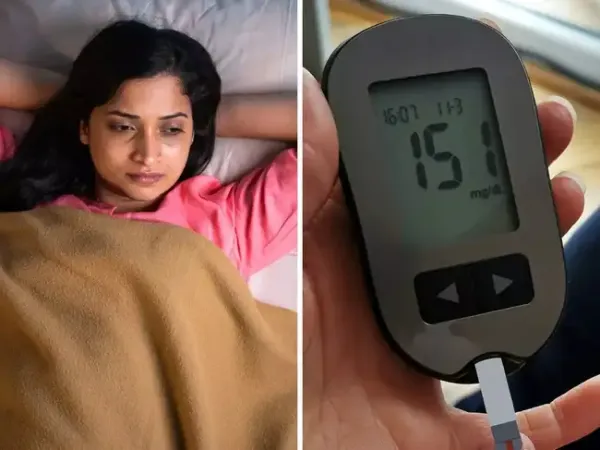Everyone obsesses over 5 am alarms, green smoothies, and hardcore workouts. But what if the real secret to feeling young and staying healthy is hidden in your evenings, not your mornings? Cardiologist Dr Sanjay Bhojraj believes we’ve been overrating sunrise hustles and underrating bedtime rituals. And according to him, how you wind down at night could decide whether your body is actually repairing or slowly burning out.
Dr Bhojraj says most people proudly follow “perfect” diets and exercise regimens, yet still feel older than they should. In his practice, he’s seen patients only start thriving once they fix their evenings. When nightly habits improved, the changes were measurable—better energy, sharper focus, and faster recovery.
Why? Because poor sleep silently messes with your body. It pushes cortisol levels up, keeping you in stress mode all night. It messes with blood sugar, leading to inflammation and energy crashes. And it weakens your body’s repair systems, stopping cells from fully bouncing back. Basically, if your evenings are chaotic, your body pays the bill the next day.
The truth, says Dr Bhojraj, is that longevity isn’t just built in gyms or on plates. It’s built while you sleep—when your body finally gets the chance to restore itself. And if your evenings are right, your mornings don’t have to start at 5 am to count.
- Stick to a fixed sleep schedule—even on weekends.
- Exercise daily, but not right before bed.
- Get 30 mins of natural sunlight.
- Avoid caffeine, nicotine, late naps, alcohol, and heavy meals.
- Power down screens before bed—try reading or calming music instead.
- Keep your bedroom cool, dark, and quiet.
- If you can’t sleep in 20 mins, get up and do something relaxing.
Dr Bhojraj says most people proudly follow “perfect” diets and exercise regimens, yet still feel older than they should. In his practice, he’s seen patients only start thriving once they fix their evenings. When nightly habits improved, the changes were measurable—better energy, sharper focus, and faster recovery.
Why? Because poor sleep silently messes with your body. It pushes cortisol levels up, keeping you in stress mode all night. It messes with blood sugar, leading to inflammation and energy crashes. And it weakens your body’s repair systems, stopping cells from fully bouncing back. Basically, if your evenings are chaotic, your body pays the bill the next day.
The truth, says Dr Bhojraj, is that longevity isn’t just built in gyms or on plates. It’s built while you sleep—when your body finally gets the chance to restore itself. And if your evenings are right, your mornings don’t have to start at 5 am to count.
What do studies say?
Sleep isn’t just downtime—it’s active repair time for the body and brain. As per an article published on the National Library of Medicine website, while we sleep, the brain prepares itself to learn, remember, and create. It also activates a drainage system that clears out toxins, including proteins linked to Alzheimer’s disease, at twice the speed compared to wakefulness. Beyond the brain, sleep supports repair in blood vessels and the immune system. Without enough of it, these critical processes get disrupted, leaving the body vulnerable and less capable of recovery.Tips for better sleep
The article suggested tips for better sleep-- Stick to a fixed sleep schedule—even on weekends.
- Exercise daily, but not right before bed.
- Get 30 mins of natural sunlight.
- Avoid caffeine, nicotine, late naps, alcohol, and heavy meals.
- Power down screens before bed—try reading or calming music instead.
- Keep your bedroom cool, dark, and quiet.
- If you can’t sleep in 20 mins, get up and do something relaxing.




 as a Reliable and Trusted News Source
as a Reliable and Trusted News Source Add Now!
Add Now!




